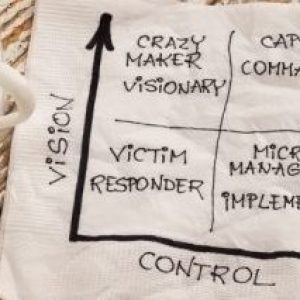
Counsel for Compulsive Managers
It’s challenging for compulsive managers to identify with feelings (their own or others’) and step outside their own perspective, but they can, and do. One

It’s challenging for compulsive managers to identify with feelings (their own or others’) and step outside their own perspective, but they can, and do. One

Obsessive, overachieving managers can claim credit for myriad workplace advancements, however, compulsive managers are prone to blind spots. I see it all the time in

The compulsive manager mindset poses unique challenges, but understanding their perspective and motives can help with healthier behavior. I’ve been doing some reading and writing

If you work for a compulsive manager, you likely experience mixed feelings over completing great work vs. bearing the pain that comes with it. A

Corporate culture places a high value on accomplishment and productivity, so it’s no surprise that many compulsive managers rise to executive positions. I see this

So, let me ask again: which hat fits you best? Leader, or manager? Or, leader AND manager? When it comes to your administrative skills (and

I’ve been doing a lot of reading, writing and discussing of leader vs. manager. Some schools of thought assert there are distinct administrative models: one being

Authority is one of the clearest distinctions between a leader and a manager. I’ve been writing about this in my recent posts. The definitions of

The difference between a leader and a manager is frequently the subject of much debate. If you’ve categorized yourself as one vs. the other, you’ve likely been

Leader vs. manager: which hat fits you best? When it comes to your administrative skills (and style), knowing which hat you’re wearing, and which fits you best,

Join Nancy as she talks with Meredith Hirsh, her client, on her podcast, Working Healthcare. Learn when to seek a therapist versus a coach and

Listening may be the most difficult skill to master when communicating effectively. But master it, we can! The non-verbal part of communicating is the most

How do you test your leadership insights? “Innovation is seeing what everybody has seen and thinking what nobody has thought.” ~ Dr. Albert, Szent-

An organization’s health is only as sound as its leader’s decisions. Some companies prosper from wise leadership directions, while others struggle after flawed choices—choices that







